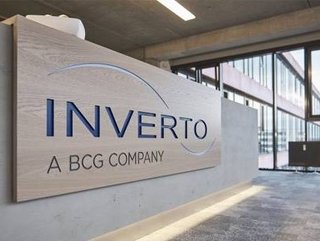INVERTO (BCG): Nearshoring can reshape supply chains

The rapid globalisation of supply chains and procurement has helped many European companies find increased efficiency in their supply base, but with the geo-political crisis worsening, and the impact still felt from the pandemic, is nearshoring the answer?
Nearshoring may go against the grain of the previously accepted strategic direction but INVERTO are arguing in their recent Supply Management Insights publication that there may be a change in thinking.
The globalisation of supply chains
With major companies relocating staff and productions to Asia, Central or South America it came with reduced labour costs and a benefit for cost efficiency even if logistics prices were increased. This resulted in fewer items being sourced from North America or Europe, but those advantages are now being eroded because of economic tensions and uncertainty in markets.
What is nearshoring?
Nearshoring involves the relocation of operational activities to neighbouring countries or those in close proximity, representing a specialised form of offshoring that stands in contrast to farshoring. By opting for nearshoring, companies can avoid the disadvantages associated with farshoring, such as complications related to working methods, time differences, and accessibility. In addition, nearshoring offers advantages such as increased flexibility and access to highly skilled professionals with advanced technical and linguistic qualifications.
What are the benefits of nearshoring?
There are many obvious benefits to increasing nearshoring of operations. These benefits include sustainability, resilience and reliability.
Nearshoring can be a crucial part of a green transformation of a supply chain, thanks to modern production techniques, automation and shorter supply chains.
Shorter physical distances increase the control of suppliers and upstream suppliers.
Nearshoring increases transparency and cuts supply chain risks.
Europe as a procurement market
“When people have talked about supply chain alignment over the last 20 years, they have often ended up saying that global sourcing is the order of the day,” says Thibault Pucken Managing Director INVERTO GmbH.
“However, the crises in recent years, together with the war in Ukraine, have shown how fragile many supply chains are and have led to a change in thinking. To ensure supply and meet sustainability requirements, Europe is once more regaining its relevance as a procurement market.”
The move towards procurement reshoring
Research from the Economist Impact Trade in Transition survey carried out between September and November 2022 quoted in Supply Management Insights also suggests a move towards both nearshoring and reshoring.
The statistics say that 20% of those surveyed in 2022 are switching to regional suppliers to shorten their supply chains, compared to 12% in 2021.
There was an even greater change in reshoring, where manufacturing and supply is shifted from abroad back to the firm’s home market. That increase moved from 5% in 2021 to 15% in 2022.
The report written by Jasmin Mikl and Patrick Lepperhoff concludes that nearshoring can produce a ‘genuine competitive advantage’ and that early adopters can also benefit from existing political and economic incentives meaning they can step ahead of impending regulations.






